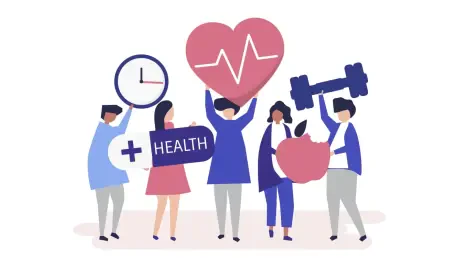In a world bustling with professional commitments and personal responsibilities, it is easy to overlook one’s health as other priorities seemingly take precedence. Many individuals push regular health check-ups to the periphery, believing that a healthy lifestyle alone suffices. However, without the insights gained from medical evaluations, this can lead to a false sense of security. A tale that illustrates this journey from neglect to awareness revolves around an individual’s decision to undergo a comprehensive health examination after years of complacency, serving as a reminder of the unpredictability and stealth of illness.
The Illusion of Wellness
Complacency in Health
Living a generally healthy lifestyle often lulls individuals into a belief that they are immune to hidden health threats. Eating balanced meals, adhering to an exercise regimen, and minimizing unhealthy habits might lead one to assume regular health check-ups are redundant. Yet, this presumption overlooks the complexity of human health and the potential for underlying issues to remain unnoticed without professional evaluations. In many cases, years can pass without an overt health concern, reinforcing the belief that everything is in order. This complacency is not driven by fear but rather a misplaced confidence in self-diagnosed wellness and the routine of daily life, where health vigilance quietly morphs into neglect.
Active Living vs. Health Monitoring
Engaging in physical activity is undoubtedly beneficial. It enhances aerobic capacity, fortifies the heart, and boosts mental well-being. However, the absence of symptoms should not be mistaken for absolute health. Regularly monitoring key health indicators, such as blood pressure, cholesterol levels, and heart function, reveals insights that lifestyle alone cannot guarantee. For instance, even the fittest individuals might unknowingly harbor risks such as high cholesterol or elevated blood pressure, both of which are discerned only through routine medical assessments. Embracing an active lifestyle is commendable, yet supplementing it with consistent health monitoring is imperative for a holistic approach to well-being.
Unveiling the Hidden Risks
Randomness of Illness
Health, much like life’s myriad aspects, is susceptible to unpredictability. Despite adhering to good habits, the occurrence of sudden illnesses can disrupt this illusion of well-being. As noted in observations by Emily St. John Mandel, an anxiety about health’s randomness permeates societal consciousness. Many dismiss it entirely, believing that disciplined living offers a shield against unforeseen maladies. Nonetheless, as evidenced through countless anecdotes, the human body is unpredictable, and even the healthiest individuals can face unexpected diagnoses. Recognizing this unpredictability is a step toward embracing proactive health management, which underlines the necessity for regular health screenings to catch issues before they manifest into severe problems.
Insights from Medical Evaluations
When delving into an extensive medical examination, individuals often face anticipatory anxiety, fearing the revelation of unwanted results. However, such evaluations frequently provide a dual benefit. Firstly, they offer reassurance, with many learning their health is better than anticipated. Secondly, they grant an opportunity to address minor concerns before they escalate. Discoveries related to aerobic fitness, coronary health, and essential health metrics reveal an individual’s true health status and underpin personalized interventions for improvement. The outcome is a balanced perspective on one’s health, rooted in empirical data rather than assumptions, ultimately urging individuals to transition from reactive to proactive health management.
Elevating Personal Priority
Parental Parallel
Parents instinctively prioritize their children’s health, vigilantly maintaining vaccination schedules and routine pediatric appointments. This dedication starkly contrasts the neglect they might exhibit towards their own health needs. The narrative of an individual neglecting personal health while ensuring meticulous care for their children echoes this disparity. The dichotomy reflects a broader trend where caregiving roles overshadow personal health maintenance. Even though self-care is fundamental, societal norms often encourage prioritizing others, leading to overlooked personal health management until a jeopardizing event prompts a reevaluation. Adopting the same standard of care for oneself as one does for children marks a shift towards healthier self-care practices.
The Role of Health Checkups
Routine health check-ups serve as a foundation for self-awareness and preventive care. They provide invaluable insights that might otherwise remain hidden, equipping individuals with knowledge to make informed decisions about lifestyle adjustments and medical interventions. By acknowledging the significance of these check-ups, individuals can transform their health management approach from circumstantial to steadfast. This proactive stance not only addresses existing concerns but also fosters a preventive mindset that prioritizes continuous well-being. Encouragingly, many who embrace this approach discover newfound empowerment in managing their health, finding motivation for maintaining a disciplined yet enjoyable lifestyle.
Reframing Health Prioritization
In today’s fast-paced world, where professional commitments and personal duties dominate our lives, it’s easy to neglect our health. Often, health becomes an afterthought as other priorities seem more urgent, leading many to assume that maintaining a healthy lifestyle is enough. Yet, without the valuable insights gained from regular medical check-ups, this assumption can foster a false sense of confidence. Consider the story of an individual who transitioned from ignoring to valuing health, prompted by a decision to undergo a thorough health examination after years of complacency. This decision was a wake-up call, underscoring the unpredictability and subtlety of many health issues. Regular health evaluations can detect problems before they become severe, providing an opportunity for early intervention. This narrative serves as a poignant reminder of the importance of staying vigilant about one’s health. It stresses that while living healthily is crucial, complementing it with medical check-ups can safeguard one’s well-being effectively.









